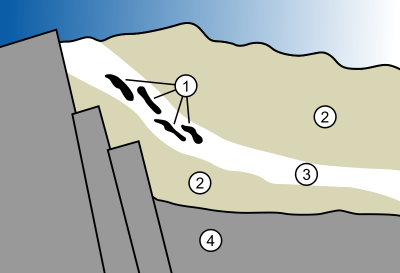
Two billion years ago, in what is now Gabon in West Africa, groundwater seeped through sandstone to inundate a layer of uranium ore, initiating a nuclear chain reaction. When the deposit heated up, the water boiled away, slowing the reaction; when it cooled, the water returned and the cycle began again.
The result was a natural, self-sustaining nuclear reactor that generated 100 kilowatts of power for several hundred thousand years.
French physicist Francis Perrin discovered the phenomenon at Oklo in 1972. “As far as we know, we only have evidence of natural reactors forming and operating at the one site in Gabon,” said Jay Cullen of the University of Victoria, “but that demonstrates that it’s possible, and our calculations suggest it was much more probable earlier in Earth’s history.”
